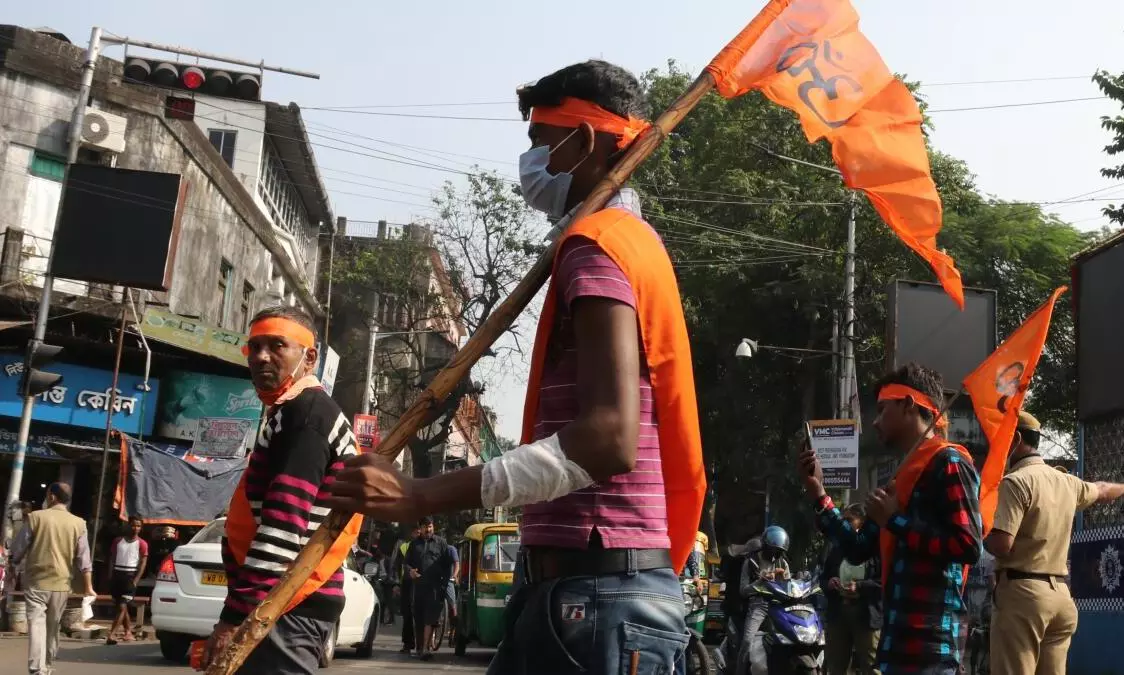
US report links rise of Hindu chauvinism to worsening communal harmony in India
text_fieldsA report from the Congressional Research Service (CRS) has highlighted concerns over India’s deteriorating human rights record and its implications for the strategic partnership between the United States and India.
The report, titled India: Religious Freedom Issues, examines the growing socio-political fault lines in India and the potential impact on bilateral ties, particularly as Washington seeks to position New Delhi as a counterbalance to China.
The report reflects divergent opinions among US policymakers and analysts on addressing these human rights concerns. While some argue for prioritising shared democratic values in the partnership, others emphasise aligning interests over values, particularly in the context of strategic and defence cooperation.
The CRS document outlines a decade-long trend of increasing communal tensions in India, which it attributes to policies and rhetoric associated with the ruling Bharatiya Janata Party (BJP).
The report points to the rise in Hindu nationalism and communal violence since 2014, asserting that these developments have eroded societal harmony and threatened the secular foundation of India’s constitution. It also explores how these issues have strained India’s relationships with other nations, including Canada and the United States.
Recent allegations of transnational activities involving the Indian government have further complicated matters. Such incidents have not only disrupted India-Canada relations but also raised concerns among US lawmakers about the trajectory of India-US ties.
The report notes that these developments could influence future bilateral engagements, with some US congressional members linking arms sales and other forms of cooperation to India’s commitment to addressing human rights violations.
The report highlights the longstanding narrative of shared democratic values as the basis for the US-India partnership. However, it warns that India’s human rights record, if left unaddressed, could undermine this foundation. Analysts cited in the report argue that India’s aspirations for great power status require societal stability and inclusivity, urging the US to emphasise these aspects in its diplomatic engagement with New Delhi.
There is also a growing debate about whether US policy towards India should prioritise human rights over security interests. A referenced Carnegie report suggests that the perceived dichotomy between values and interests may be flawed, proposing a more integrated approach that ties respect for human rights to broader national security goals.
The CRS report outlines several recommendations for the US Congress to address these issues. These include conditioning aid and defence cooperation on improved human rights conditions, advocating for reforms to controversial laws like the Unlawful Activities Prevention Act (UAPA) and the Foreign Contribution Regulation Act (FCRA), and facilitating independent oversight through organisations such as the US Commission for International Religious Freedom.
However, it also acknowledges the potential backlash from New Delhi, warning that forceful actions on human rights could strain bilateral ties and challenge efforts to deepen the partnership.























